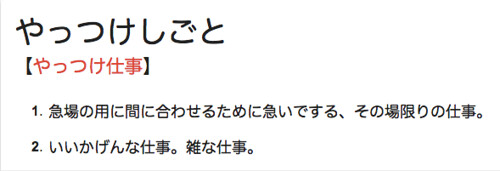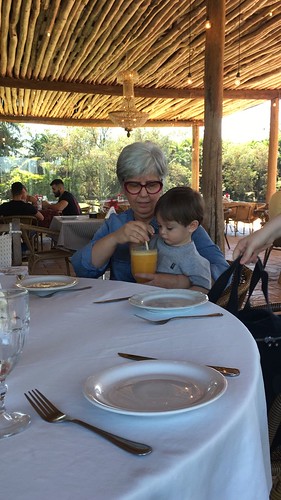By defeating them in direct competition. Importantly, gloating was also characterized by higher boastingwww.frontiersin.orgFebruary 2015 | Volume 6 | Article 201 |Leach et al.Distinguishing schadenfreude and gloatingthan was pride. While we performed a good quantity of statistical tests to examine every specific appraisals, experiences, and expressions with the 4 pleasures, observed differences tended to be constant, hugely “statistically considerable,” and moderate to significant in size. This offers us self-assurance that these differences are unlikely to be as a result of higher chance introduced by the number of statistical tests we performed. Importantly, the equivalence checks showed that the emotion conditions had been equivalent inside a quantity of significant strategies. The gloating, schadenfreude, joy, and pride episodes were noticed as equally fair and reputable, and as equally predictable and changeable. Hence, there was tiny distinction in what participants  had “at stake” within the schadenfreude and gloating scenarios, or in the individual or group conditions. This guidelines out the alternative explanation that the schadenfreude and gloating episodes differed so much simply because the schadenfreude episode was less essential to participants than the gloating episode. The possibility that the observed differences between schadenfreude and gloating reflect a response bias that encouraged significantly less expression of everything associated to schadenfreude was also ruled out. As anticipated, schadenfreude was rated larger on numerous appraisals (e.g., powerlessness, other-agency). The present outcomes are also notable for the consistent pattern of parallel effects across the individual and group situations of your feelings. The manipulation of individual vs. group emotion rarely had effects on the expertise or the expression of the pleasures. Nevertheless, as expected, the group-based pleasures have been occasionally expressed a lot more openly. Importantly, the individual and group situations of schadenfreude and gloating did not are likely to differ from one another. This demonstrates the generalizability from the findings across person and group instances.get GS-1101 credit or payment of ?. Participants’ ages ranged from 17 to 45, M = 21, SD = 4.0. Participants were randomly assigned to one of several four experimental conditions in a two (individual vs. group emotion) ?two (schadenfreude vs. gloating) between-participants style.ProcedureAfter giving consent and finishing some demographic queries, participants have been asked to vividly imagine taking element in an occasion. Within the interpersonal situation, the participant was asked to envision that s/he was an individual competing against a rival for any spot on the university’s field hockey group. Inside the intergroup condition, the participant was asked to consider that s/he was a member in the university hockey group competing against rival universities. A second section on the vignette then supplied the participants an chance for gloating or schadenfreude. The gloating opportunity was presented by having participants picture succeeding against their rival. The schadenfreude chance was presented by having their rival fail against a third party.MeasuresMeasures integrated checks around the equivalence on the vignettes, four types of emotion encounter and five types of emotion expression. Equivalence checks. Participants had been asked to indicate to what degree they felt “a sense of rivalry,” “hostile” toward their rival, and “threatened” right after reading the vignette. Responses we.By defeating them in direct competitors. Importantly, gloating was also characterized by higher boastingwww.frontiersin.orgFebruary 2015 | Volume 6 | Post 201 |Leach et al.Distinguishing schadenfreude and gloatingthan was pride. Although we performed a fantastic quantity of statistical tests to examine every single distinct appraisals, experiences, and expressions with the four pleasures, observed variations tended to become consistent, very “statistically considerable,” and moderate to substantial in size. This provides us self-assurance that these variations are unlikely to be because of the greater chance introduced by the amount of statistical tests we performed. Importantly, the equivalence checks showed that the emotion situations have been equivalent inside a variety of important approaches. The gloating, schadenfreude, joy, and pride episodes have been noticed as equally fair and reputable, and as equally predictable and changeable. As a result, there was little difference in what participants had “at stake” inside the schadenfreude and gloating circumstances, or inside the individual or group scenarios. This guidelines out the option explanation that the schadenfreude and gloating episodes differed a lot due to the fact the schadenfreude episode was significantly less vital to participants than the gloating episode. The possibility that the observed differences involving schadenfreude and gloating reflect a response bias that encouraged less expression of every thing related to schadenfreude was also ruled out. As expected, schadenfreude was rated larger on a variety of appraisals (e.g., powerlessness,
had “at stake” within the schadenfreude and gloating scenarios, or in the individual or group conditions. This guidelines out the alternative explanation that the schadenfreude and gloating episodes differed so much simply because the schadenfreude episode was less essential to participants than the gloating episode. The possibility that the observed differences between schadenfreude and gloating reflect a response bias that encouraged significantly less expression of everything associated to schadenfreude was also ruled out. As anticipated, schadenfreude was rated larger on numerous appraisals (e.g., powerlessness, other-agency). The present outcomes are also notable for the consistent pattern of parallel effects across the individual and group situations of your feelings. The manipulation of individual vs. group emotion rarely had effects on the expertise or the expression of the pleasures. Nevertheless, as expected, the group-based pleasures have been occasionally expressed a lot more openly. Importantly, the individual and group situations of schadenfreude and gloating did not are likely to differ from one another. This demonstrates the generalizability from the findings across person and group instances.get GS-1101 credit or payment of ?. Participants’ ages ranged from 17 to 45, M = 21, SD = 4.0. Participants were randomly assigned to one of several four experimental conditions in a two (individual vs. group emotion) ?two (schadenfreude vs. gloating) between-participants style.ProcedureAfter giving consent and finishing some demographic queries, participants have been asked to vividly imagine taking element in an occasion. Within the interpersonal situation, the participant was asked to envision that s/he was an individual competing against a rival for any spot on the university’s field hockey group. Inside the intergroup condition, the participant was asked to consider that s/he was a member in the university hockey group competing against rival universities. A second section on the vignette then supplied the participants an chance for gloating or schadenfreude. The gloating opportunity was presented by having participants picture succeeding against their rival. The schadenfreude chance was presented by having their rival fail against a third party.MeasuresMeasures integrated checks around the equivalence on the vignettes, four types of emotion encounter and five types of emotion expression. Equivalence checks. Participants had been asked to indicate to what degree they felt “a sense of rivalry,” “hostile” toward their rival, and “threatened” right after reading the vignette. Responses we.By defeating them in direct competitors. Importantly, gloating was also characterized by higher boastingwww.frontiersin.orgFebruary 2015 | Volume 6 | Post 201 |Leach et al.Distinguishing schadenfreude and gloatingthan was pride. Although we performed a fantastic quantity of statistical tests to examine every single distinct appraisals, experiences, and expressions with the four pleasures, observed variations tended to become consistent, very “statistically considerable,” and moderate to substantial in size. This provides us self-assurance that these variations are unlikely to be because of the greater chance introduced by the amount of statistical tests we performed. Importantly, the equivalence checks showed that the emotion situations have been equivalent inside a variety of important approaches. The gloating, schadenfreude, joy, and pride episodes have been noticed as equally fair and reputable, and as equally predictable and changeable. As a result, there was little difference in what participants had “at stake” inside the schadenfreude and gloating circumstances, or inside the individual or group scenarios. This guidelines out the option explanation that the schadenfreude and gloating episodes differed a lot due to the fact the schadenfreude episode was significantly less vital to participants than the gloating episode. The possibility that the observed differences involving schadenfreude and gloating reflect a response bias that encouraged less expression of every thing related to schadenfreude was also ruled out. As expected, schadenfreude was rated larger on a variety of appraisals (e.g., powerlessness,  other-agency). The present results are also notable for the consistent pattern of parallel effects across the individual and group situations on the emotions. The manipulation of individual vs. group emotion hardly ever had effects on the expertise or the expression on the pleasures. Nonetheless, as expected, the group-based pleasures have been sometimes expressed extra openly. Importantly, the individual and group situations of schadenfreude and gloating didn’t are likely to differ from each other. This demonstrates the generalizability of your findings across person and group situations.credit or payment of ?. Participants’ ages ranged from 17 to 45, M = 21, SD = four.0. Participants have been randomly assigned to on the list of four experimental situations inside a 2 (individual vs. group emotion) ?two (schadenfreude vs. gloating) between-participants design.ProcedureAfter providing consent and finishing some demographic questions, participants had been asked to vividly imagine taking part in an occasion. Within the interpersonal condition, the participant was asked to picture that s/he was a person competing against a rival for any SB-590885 location around the university’s field hockey group. Inside the intergroup condition, the participant was asked to imagine that s/he was a member of your university hockey group competing against rival universities. A second section from the vignette then offered the participants an chance for gloating or schadenfreude. The gloating opportunity was presented by getting participants think about succeeding against their rival. The schadenfreude chance was presented by obtaining their rival fail against a third celebration.MeasuresMeasures included checks around the equivalence on the vignettes, 4 types of emotion practical experience and five types of emotion expression. Equivalence checks. Participants were asked to indicate to what degree they felt “a sense of rivalry,” “hostile” toward their rival, and “threatened” right after reading the vignette. Responses we.
other-agency). The present results are also notable for the consistent pattern of parallel effects across the individual and group situations on the emotions. The manipulation of individual vs. group emotion hardly ever had effects on the expertise or the expression on the pleasures. Nonetheless, as expected, the group-based pleasures have been sometimes expressed extra openly. Importantly, the individual and group situations of schadenfreude and gloating didn’t are likely to differ from each other. This demonstrates the generalizability of your findings across person and group situations.credit or payment of ?. Participants’ ages ranged from 17 to 45, M = 21, SD = four.0. Participants have been randomly assigned to on the list of four experimental situations inside a 2 (individual vs. group emotion) ?two (schadenfreude vs. gloating) between-participants design.ProcedureAfter providing consent and finishing some demographic questions, participants had been asked to vividly imagine taking part in an occasion. Within the interpersonal condition, the participant was asked to picture that s/he was a person competing against a rival for any SB-590885 location around the university’s field hockey group. Inside the intergroup condition, the participant was asked to imagine that s/he was a member of your university hockey group competing against rival universities. A second section from the vignette then offered the participants an chance for gloating or schadenfreude. The gloating opportunity was presented by getting participants think about succeeding against their rival. The schadenfreude chance was presented by obtaining their rival fail against a third celebration.MeasuresMeasures included checks around the equivalence on the vignettes, 4 types of emotion practical experience and five types of emotion expression. Equivalence checks. Participants were asked to indicate to what degree they felt “a sense of rivalry,” “hostile” toward their rival, and “threatened” right after reading the vignette. Responses we.
M2 ion-channel m2ion-channel.com
Just another WordPress site
